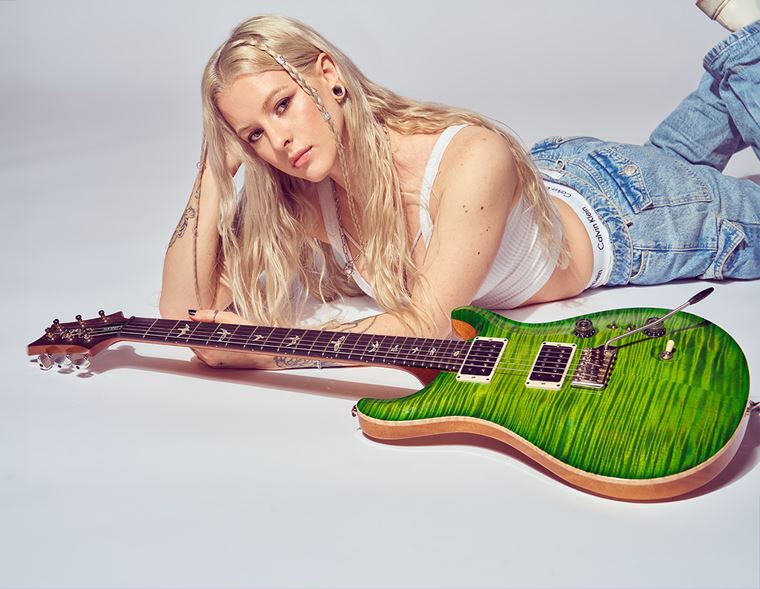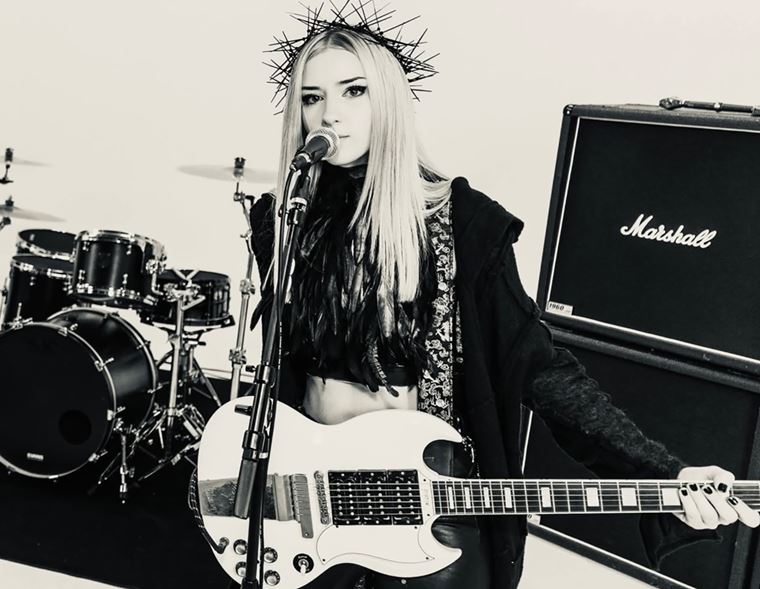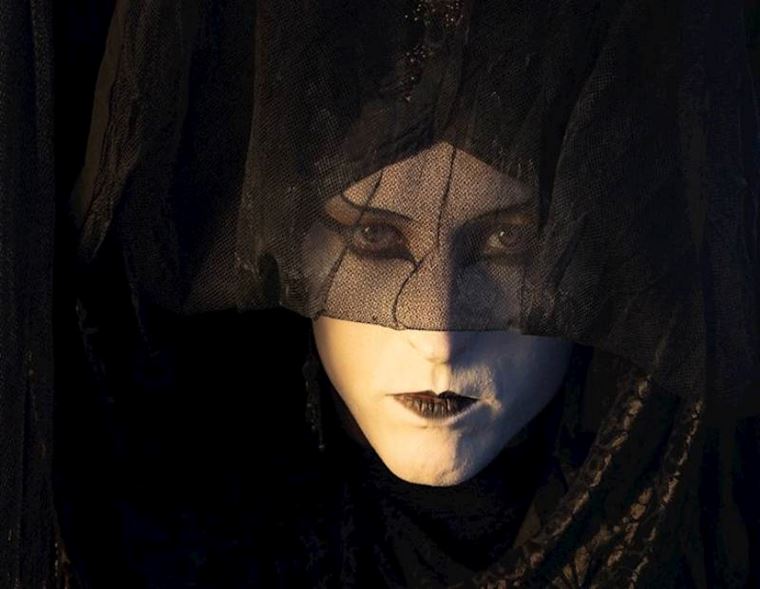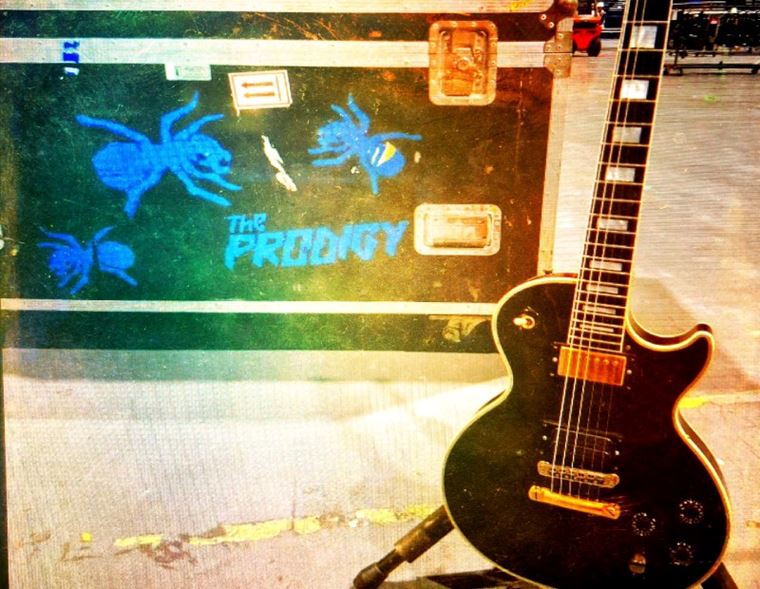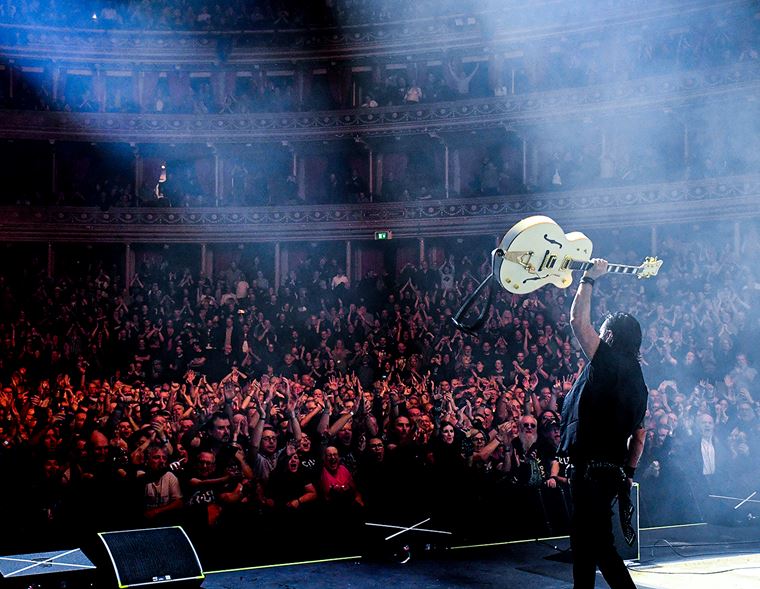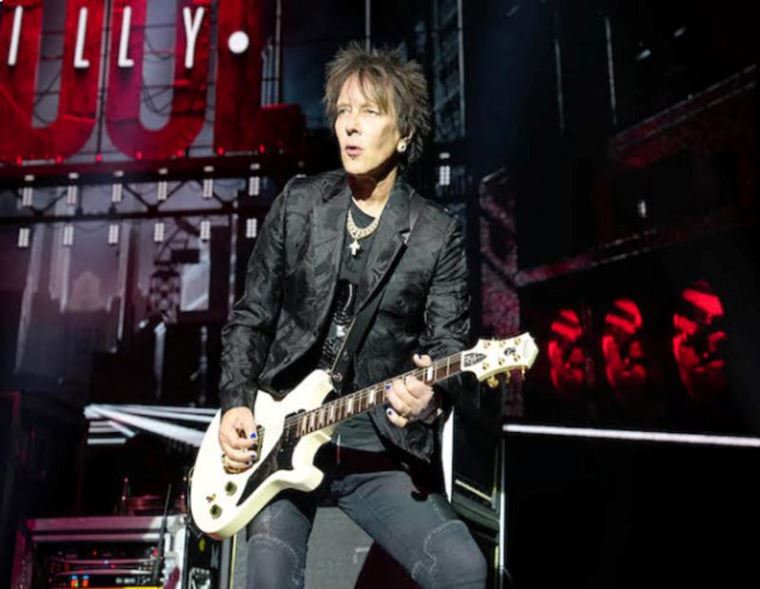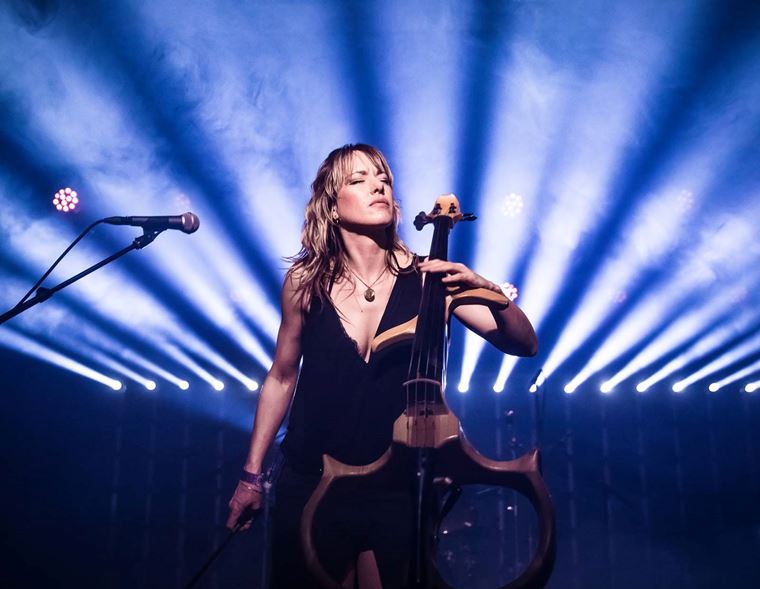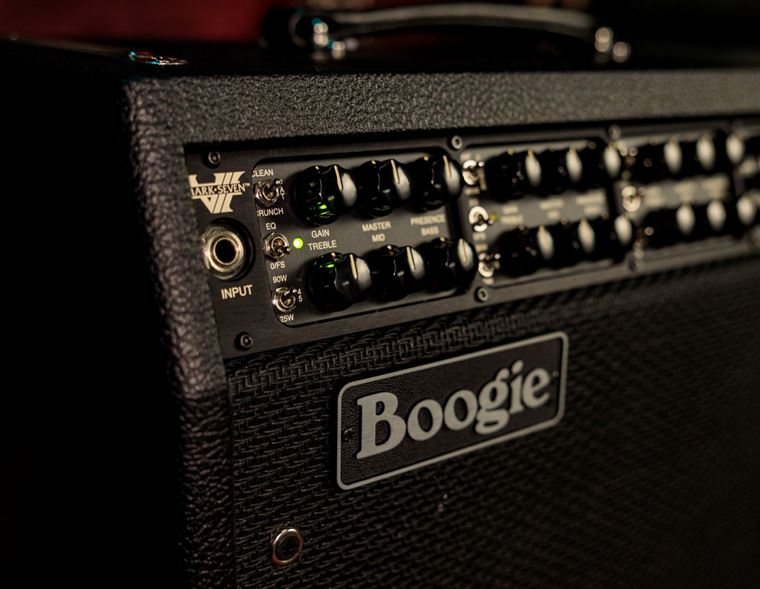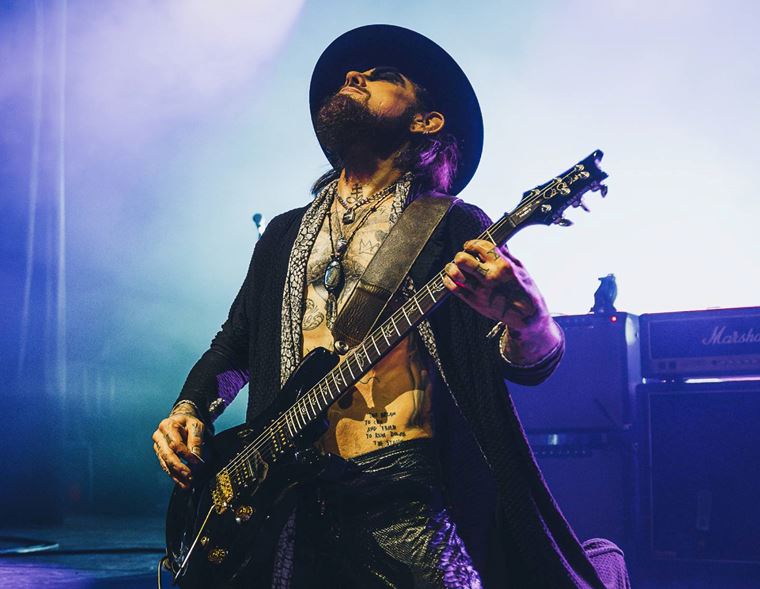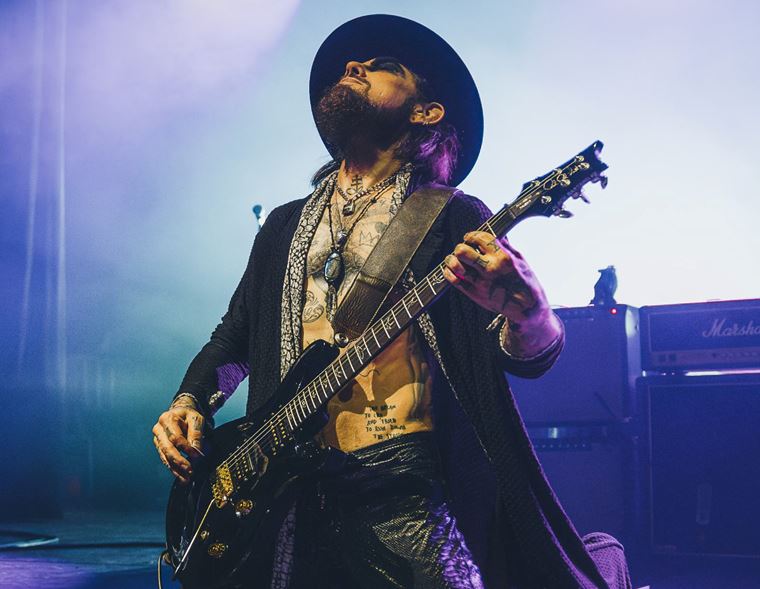Josh Rand Talks Guitars, L.I.F.E. Project and STONE SOUR!
Published on 23 July 2021
It’s a sunny day in Des Moines, Iowa, and Josh Rand is in fine fettle. ‘I’m just rockin’ and rollin’, trying to stay positive’, he says with a laugh over our Zoom link. It’s midday over there and we are chatting to find out more about the Stone Sour guitarists’ new band, the L.I.F.E. Project.
At the time of our conversation, three songs had been released, and each displays a wide range of sounds and writing styles, not to mention the incredible vocals of band member Casandra Carson. An E.P., entitled A World on Fire, is now available everywhere, and it’s something of a glorious departure for Josh.
Known for his guitar skills from over 20 years of playing in Stone Sour (the band fronted by Slipknot’s Corey Taylor), Josh ups his game quite substantially this time by playing and programming every instrument himself! We’re talking thunderous drums, pounding bass and ethereal keyboards, all in addition to his signature metallic riffing and exotic sounding solos. Impressed? You should be!
Given how ambitious this music is, that’s no mean feat, and we wanted to know all about it!
In our interview, Josh proved himself to be a funny and entertaining guy to talk to. We covered the formation of the new band, the recording and lots more, but we also got into the merits of different eras of Van Halen, and also the inspiration to be found in MC Hammer!
Josh Rand Interview
Guitarguitar: So yeah, you’re a bit of a one-man army on this EP! Apart from the vocals, you’ve played every single instrument, is that correct?
Josh Rand: Yeah: played, programmed or sequenced.
GG: Goodness me!
JR: Yeah, it really wasn’t my intention, Covid kinda forced my hand in that! But I just wanted to get stuff out and let people hear it, because it was stuff I’d been working on all the way back in 2019. I just got to the point last year where, in the US, Covid was at its highest peak at that point and I was just like, ‘I wanna get this music out so I can move forward with new stuff!’ (laughs) So I made the decision to go ‘hell with it, I’m just gonna put it out’. I talked to Casandra and we decided to put this stuff out, to help lay the groundwork for the band to come out and really do something in 2022. That’s the plan. This is just kinda to get our feet wet and to introduce the world to the band.
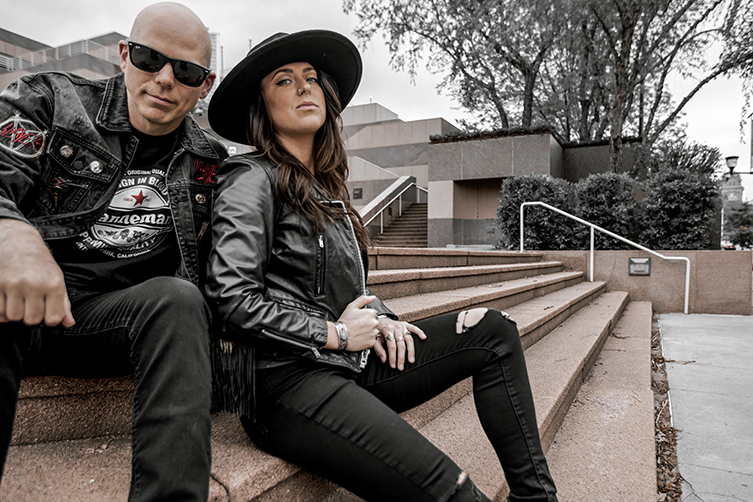
GG: Right, okay, so even back in 2019 when the songs were coming together, was it always the plan to have Casandra be the vocalist and you be the writer and so on?
JR: Well, pretty much all of 2019 was just me writing music. Casandra didn’t come into the picture until, I think, February of 2020. I knew I was gonna write a bunch of songs, and I wanted to get a big chunk written before I started looking for other band members. Obviously, the vocalist is the most important aspect of that. So, once I got to a decent amount of songs, I was talking to David Rath, the A&R guy for Roadrunner, and I told him I wanted this band to be female-fronted. He introduced me to Casandra by sending me a link to check her out. So I did, and I contacted her and I was like, ‘Hey, I’m gonna be doing a new project or band, could this be something you’re interested in?’, you know, and she was like, ‘Yeah, sure!’. We starting working out on some covers just to see how we would vibe, because our influences are different from one another, big time! (laughs) But I knew by hearing her voice that it would be the perfect voice for what I’m doing. So we did some covers, and then the first song that we did was The Nothingness, as far as an original, and when she sent it back, I was like, ‘Oh yeah, she’s the right person for sure’.
Then Covid happened, and kinda threw a wrench into rounding out the rest of the band. I got to the point like I said before where I’m like, I wanna just release this stuff because it’s hard for me to release new stuff if I’m still sitting on a bunch of old stuff. So yeah, we’re gonna do the EP this year, probably go ahead and release those cover songs that we kind of cut our teeth with, with nothing more than that being that, you know? Make sure there’s a big disclaimer saying hey, this is us just testing the waters! We’re kinda letting you into the process, how it played out for us.
"It was so loud when we were recording the final guitar tracks, it kept setting off my security system in my house!"
GG: Sure.
JR: And then next year, wither it’s gonna be another EP or a full-length, hopefully in the first quarter of next year, and then hopefully we get a tour. I’m already looking at people to round out this band right now. That was my initial plan: I had no intention of trying to do everything myself. It’s different when I’m writing at home, but obviously when you bring in other people, it’s a different chemistry, and usually stuff goes to another level.
GG: Brilliant! That’s answered about five of my questions all in one answer there, so good going! (laughs) So, obviously you’re best known as a guitar player, but here you are covering the bass, the drums, the keyboards, all to a high standard. It’s not like you’re ‘making do’ with your drum skills or whatever. There’s a lot happening there! Have you always been a capable multi-instrumentalist?
JR: I started out on bass and drums before I played guitar, so I have good knowledge. And that’s how I write in Stone Sour: I write a song and give it to Cory (Taylor, Stone Sour and Slipknot vocalist) and then Cory writes lyrics or says, ‘hey, this needs to be changed’ or ‘I’m not vibing it’, before it even goes to the rest of the guys, for the songs that I submit. So, it’s really no different, it’s how I’ve always done stuff. It’s just, for instance, the drummer I’m looking at lives in Des Moines, where I live. His skill set is next level: I mean, he’s phenomenal! So that’s the thing with me: I listen to so many bands that are technically savvy, let’s say. The rest of the band will be at a different level of musicianship than what I can bring to those instruments.
Plus, it’s just a different thought process, especially for bass. I did play bass, I have a good understanding of it: I never want to follow the guitar when I play bass. I mean, obviously in metal, that’s the standard, but then you lose a lot of power that way, so, bringing in somebody else where bass is their thing... I’m just hoping everything goes to another level, once the band is rounded out. Actually, I don’t think, I know it will because of the quality and character of the people that I wanna bring in.
GG: Amazing! So, when you demo songs in the way you mentioned earlier, I’m wondering, for the L.I.F.E. Project, were you writing with a headspace for a different style? Or is it more like whatever comes out, comes out?
JR: Whatever comes out, comes out! That was my idea with this. The biggest influence for this project over the last two years for me has been the addition of me playing keyboards. We wrote 13 songs even though only 5 are coming out at this point. Well, 4 of those songs were piano based. That’s what got me excited about writing: it was so different! I mean, I’m not great at piano at all. Luckily, with technology being what it is and MIDI and stuff, I’m able to get my ideas across. But after six months of writing that way, coming back to guitar was like a newfound love to the guitar! And then, I think what I wanted to do was get back to kinda my roots: why I started playing and what I came back to is riffs!
GG: Uh-huh!
JR: I mean, that’s literally...and it was more exciting for me to listen to. I went a whole year without any vocal melodies, so it’s like, I need to make it interesting to me to listen back to these songs without vocals. Nobody wants to hear 4 - 5 minute songs that have just strummed power chords, so it had to be interested via guitar or drums, or even bass or piano. Piano was just a huge factor. Or MIDI keyboards, or however you wanna put it!
GG: Sure. So, that’s really interesting actually. I’ve heard three of the songs so far and they are very riff-based. I’m having a hard time even conceiving how you’d start such a song on a synth. Are we talking chord progressions on there and then you go across to the guitar for the riffs?
JR: Well, it depends on the track. Of the 3 songs that are out right now, 2 of them are totally written on guitar. But, you go to A World on Fire (the EP’s title track and the 3rd of the songs that were available at the time of our conversation) and it started with...I kinda worked backwards with that song, which is kinda weird. I’ve always wanted to do a song like that, where there was tons of pushing and pulling, how to climax in the chorus. The main thing was, I wanted it to feel like two different songs in one, without it making you feel like you were going a hundred miles an hour then hit a wall. I mean, I’m so proud of that transition between the pre-chorus into that chorus, it’s so smooth and it flows and it feels right. In some ways it’s two different songs!
I mean, I started it with the chorus, with me playing the keyboard part, and then I worked backwards with all the riffs and rounded out the song. I cannot stress how much was written on different instruments, instead of guitar. So then, when I did start writing on guitar, it was more exciting, I don’t know how else to explain it.
GG: I totally get you, it’s giving your guitar a whole different context to work off. It’s a different headspace for you as a player, isn’t it?
JR: Well yeah, and the other thing with adding the keyboard stuff, for myself, is that some of those lines were guitar lines. I just transferred them over to whatever keyboard or whatever sonics I wanted.
GG: Yeah.
"Nobody in their right mind would ever think that MC Hammer would influence me to write 30/30-150 for Stone Sour, but he did!"
JR: I think that also adds a different layer and texture, so it’s not just straight up guitar, bass and drums. There’s actually a lot of keyboard that’s in this entire project, it’s just the way we have it layered, where I wanted a lot of it to be there but not there, if that makes any sense.
GG: Yeah, it does.
JR: It’s to help fill things out.
GG: Yeah, if you took them out of the mix and played the song without them, you’d really notice them gone, right?
JR: Oh, absolutely.
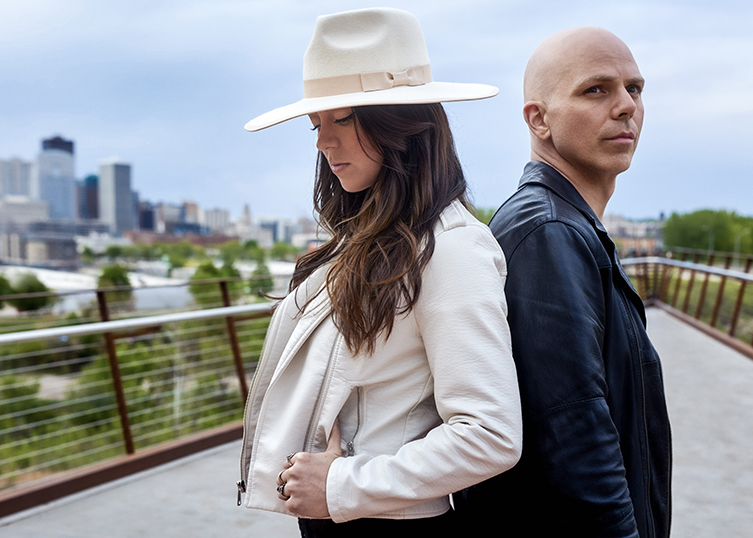
GG: Now, of course, you are the writer of a few good guitar riffs and I would like to talk about riffs for a while, Why not, it’s guitarguitar!
JR: Yeah, exactly!
GG: It’s always a bit of a contentious question, the whole ‘what do you think a good riff is?’, but from talking to a bunch of guitarists over the years and being one myself, I’ve often found that a lot of people ‘feel’ a riff, and that it spontaneously arrives or happens. Then others tend to methodically write theirs out, and the two are very different schools of riff-writing, if you like. Would you say you swing more in one direction or the other?
JR: Um, I just go by feel. When it comes to riffs, sometimes the riff will pop into my head and I’ll run with it. Other times, the drum beats might inspire that riff. There’s been times when I’ll just throw up drum beats and see what feels natural to write to that drum beat. I’ve come up with some great stuff over the years by doing that. It also takes the pressure off, I think, of always sitting down with a guitar and saying, ‘I have to come up with a riff’. It’s just think it’s important for musicians to constantly try different things, because it keeps stuff fresh that way. You’ll always ultimately fall back to whatever way you do things, but I think breaking out of that box...I was kinda late to that game, so that’s my advice to anybody: be as open to all styles of music and listen to different arrangements. Pay attention to that stuff and incorporate it into whatever style you’re playing. You can pull from every style of music. A good reference that I always say is: nobody in their right mind would ever think that MC Hammer would influence me to write (Stone Sour song) 30/30-150 but he did, alright? Hahaha! And still, 14 years later, nobody has been able to put that connection together. I just sit back and laugh because it’s there!
GG: Hahaha, well I’ve certainly not come across that reference so I’m gonna need to go back and listen again! So, the Ignite riff, off the new EP: I don’t want to say it’s ‘exotic’ but there seems to me a kind of minor, semi-tone kind of thing going on there. Is that an example of a riff that came before the song, or after the writing had progressed?
JR: No, that song started with that main riff. Really, that song came about because Stone Sour toured with Korn in 2017. We’ve toured with those guys a ton over the years and me and Munky decided to trade guitars after the last show, so I ended up getting one of his touring Apex 7 strings. I’d never written anything on a 7 string, so when I got home, Ignite was actually one of the first songs I’d written and it all comes down to playing and recording with a 7 string for the first time. I even left it in Korn tuning, so it’s tuned to A.
GG: Nice!
JR: Yeah, everything is how he had it...well, I changed the strings out (laughs) obviously, but you know, it’s got his glow-in-the-dark tape for fret markers because there’s no fret markers on the guitar! Yeah, so that’s how that song came about, really, that main riff. If you listen, I play a lot in Harmonic Minor. A lot!
"I like Van Hagar better than Van Halen!"
GG: Riiiight!
JR: All the exotic scales. You listen to all the solos on both Stone Sour and the L.I.F.E. Project and you’ll always hear that I’m playing some exotic scale. It’s just what my ear’s drawn to. When I first started playing, I kinda bypassed that whole blues and pentatonic thing, it was like, straight into Yngwie and Paul Gilbert, Steve Vai and Joe Satriani, those were my four guys for solos.
Because I was playing bass for years before I went to guitar, my hands were already limber, you know what I’m saying? It wasn’t like just starting out, where it was like Mel Bay’s Guitar Lesson 1 (laughs), so I already had a good knowledge of it. Right outta the gate I was like, ‘Hell, I don’t wanna play Red House! I wanna learn how to play Scarified! (laughs) With saying so, those guys obviously pull from exotics: these use all the scales! Especially Yngwie, he writes in harmonic minor exclusively! So I mean, it translates over into my style of playing. I like having the tritones. It sounds natural to me and at this point, it’s just part of my style.
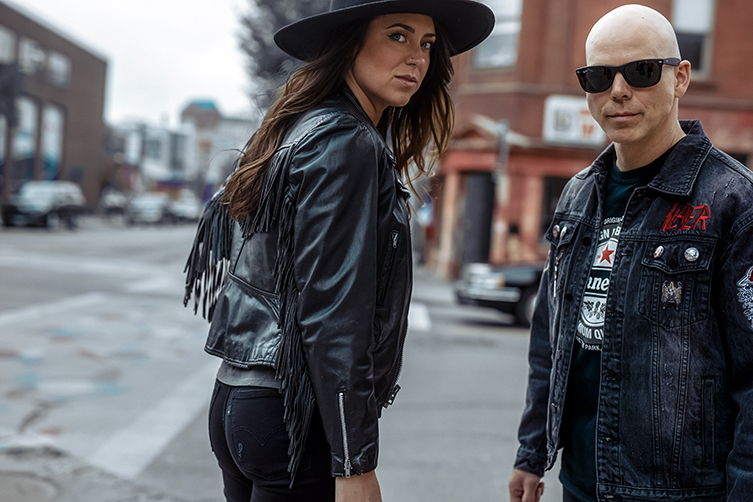
GG: It’s refreshing to hear guitar playing that uses non blues based idioms. You don’t have to know everything about the modes to sort of understand that, for example, you can learn the Lydian in one place and shift it around, and all of a sudden you’ve got a whole new concept for playing, you know?
JR: Yeah, absolutely.
GG: I was going to ask about your influences there before you just gave me some! I was on your Instagram and I saw that you were modifying one of the EVH Frankenstein guitars! I was going to ask if Eddie Van Halen was a big influence?
JR: Well, here’s the thing: not on guitar!
GG: Ah...
JR: Eddie Van Halen was more of an influence on me as a keyboard player, ok? (laughs) Don’t get me wrong: I’m sure everyone who reads this is gonna say ‘what the fuck is he talking about?’ Eddie Van Halen, as a guitar player, is obviously on Mount Rushmore, hands down. Not only for technique: as an innovator, everything. I hold him at a high standard. But, for me, he influenced guys that influenced me. That’s really what it comes down to. It’s like Hendrix: I love Jimi and I have massive respect, he’s influenced everyone who’s come after him on guitar for rock, but it doesn’t necessarily mean he’s my top choice in who I enjoy listening to. That’s in no way meant as disrespectful.
GG: No, no, I get that.
JR: I like Van Hagar better than Van Halen! And also, with that being said, I will also say I consider them two different bands. I consider the David Lee Roth fronted one to be a rock band that’s about having a good time. The Sammy Hagar era, to me, became almost like adult contemporary, and it’s also just the songwriting as a whole and the production, is better. But like I said, that’s just my opinion and I like both bands equally. If I was to learn more towards one, it’s like: sorry, but Sammy Hagar is a great singer! (laughs) Sorry Dave! I’d rather have Dave as, like, a talk show host! It would be so fucking entertaining!
GG: You know what? You’re totally right!
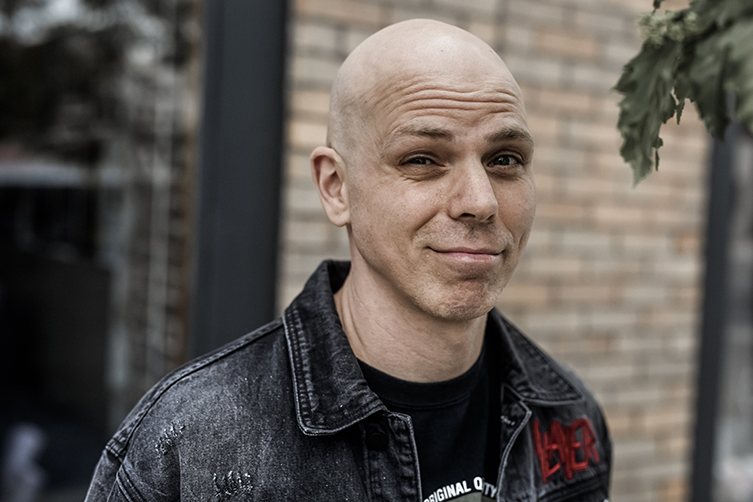
JR: Yeah, because his personality is so over the top and his persona’s just...let’s put it this way: the guy does not lack confidence!
GG: That’s it!
JR: But that’s what everybody loves about him, you know?
GG: That’s it! Well, it’s a good point, because when you’re learning guitar, the Van Halen tunes you learn are more like Aint Talkin’ ‘Bout Love and those ones, but the ones you maybe listen to more are Hagar tunes like Dreams and whatever. The big power anthems.
JR: Yeah! All stuff that he added guitar to, after playing the keyboards!
GG: There you go! Haha! Now, let’s just go back to guitars for a little bit! You’re a big Ibanez guy. Obviously a lot of the influences you mentioned are Ibanez players. Were you an Ibanez fan anyway, or did Ibanez happen for you after Stone Sour got big and so on?
JR: I was always an Ibanez guy. Probably just like you said: everybody that has a massive influence on me was an endorsee, with the exception of the Metallica guys. But, I dunno, it always felt comfortable to me. Nowadays, I’m still with Ibanez as an endorsee but I own everything and it’s kind of...I’ve made it kinda clear that I wanna be able to play whatever at this point. Things change, and certain guitars work in certain situations, you know? Like, with all the Ibanez stuff that gets built for me, and I collect the signature models, but I needed different stuff too, I guess. That’s why I introduced different brands, and started adding Fender Custom Shops and stuff. A Strat sounds totally different from one of my custom Ibanezes that has an X2N (DiMarzio pickup) or Fishmans, you know, that are more geared for metal or hard rock. I always wanted that variety of tones. That comes from years of playing too and, once again, broadening your mind. When I was younger, I was like, ‘If it’s not Bay area Thrash metal, it’s GARBAGE! (laughs) So, yeah for the most part, Ibanez. It just feels like home. I can play any of their guitars and it just feels natural to me.
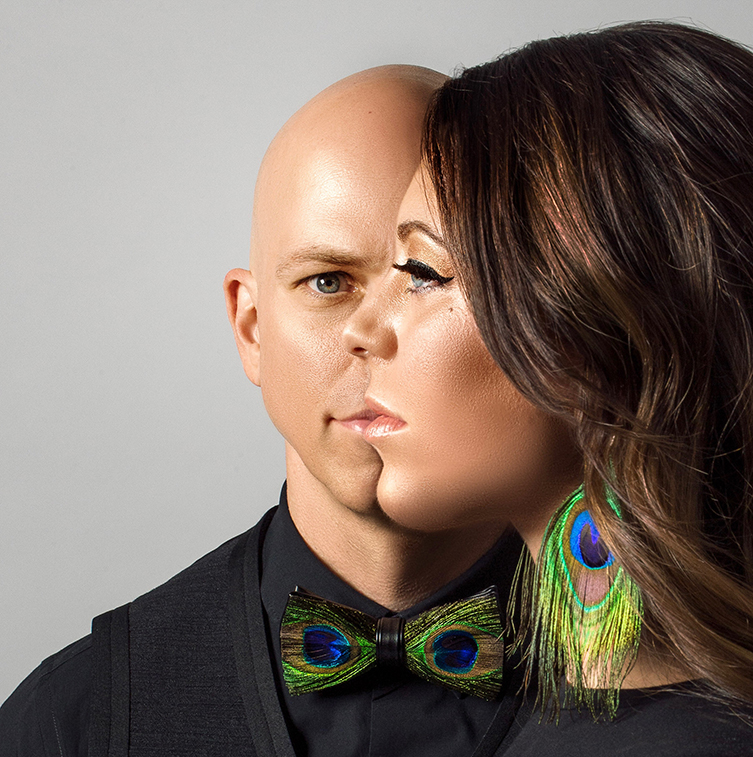
(Photo: Trav McAvaddy)
GG: Yeah! Do you have a preference for the S or the SA style?
JR: All of them! Yeah, some guys are ‘this is my guitar and this is my rig’; I’m like kinda punk rock in the sense of ‘hand me whatever’. The setup is more important than the instrument itself. Obviously, I’m pretty picky about string height. Other than that, I’m at a point now where I don’t give a shit whether it has 21 frets, 22, 24, whether it’s a Gibson, Fender...obviously Ibanez stuff is more comfortable for me to play, just in the sense of it being my specs on most of the stuff that I own.
GG: Now, I’m assuming you came through the ranks on gauge nine strings because of being an Ibanez guy who’s into Paul Gilbert and Steve Vai. I’m assuming also that a fair amount of music that you play is tuned lower than standard, would that be right?
JR: Yeah, I just thought about this not long ago. For one thing, I still have to maintenance all these guitars that I own, so, I’ve written or played between both bands, there’s nine different tunings.
GG: Wow!
JR: With that being said, depending on what the tuning is, decides my string gauge. I play nines, tens, elevens, fourteen though seventy four...
GG: Shit.
"Be open to all styles of music and listen to different arrangements. Pay attention to that stuff and incorporate it into whatever style you're playing. You can pull from every style of music."
JR: Yeah, on the drop stuff. It gets back to that whole thing: the setup is more important to me than anything else. You can make anything else work.
GG: So, do you like quite a low action?
JR: I like a super low action. It’s got a little bit higher because I’ve noticed the sustain and that I get a better tone out of it, if I go a little bit higher than normal with it. The other thing I’ve done over the years is just having my solo guitar set up that way and taking my rhythm guitars to what everyone else would consider a normal height because, just like I said, the sustain is better. It gets a better tone when it’s a little higher than super-low.
GG: Yeah, yeah. And what about picks? Do you have a specific type of pick that you prefer?
JR: Uh, Jumbo Jazz, .88mm. Once again, we get back to: I have a pick box that has everything from .50mm unto to, I think, 2.5mm, and everything in between. Every different style pick, whether it’s nylon, Tortex. The original bass player in Stone Sour, Shawn Economaki, actually is the person who put it together and it’s ridiculous, every pick you can think of, it’s in there. It’s crazy! So , it all depends: when recording, sometimes I’ll bounce around. I might not like the attack I’m getting with this certain pick on this certain song, because of maybe the tempo. I really dive into this stuff, and I might overthink it to some degree, but I think it’s important stuff. But yeah, my primary pick is the .88mm Jumbo Jazz.
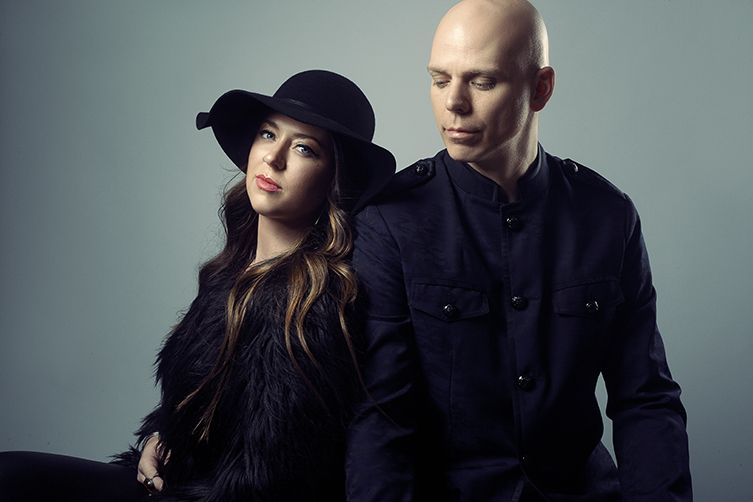
(Photo: Trav McAvaddy)
GG: Cool, cool. In terms of the guitar tones on the L.I.F.E. Project EP, they are very, very nice: big, thick, distorted, awesome tones. I saw some footage of your studio and there’s some lovely amps in there like Diezel heads and so on. Were you mainly using actual amps, or is some of it digital?
JR: I use digital very, very sparingly. It’s all real stuff. There’s no secret to this guitar tone, it’s very simple. I’ll tell you: it’s a Hughes & Kettner Triamp MkIII - which is my primary amp and Hughes & Kettner have been forever for me – and we added in a Diezel VH2. The H&K is going to a Marshall 1968 cabinet. The Diezel is going into an Orange 412. Microphones: Sennheiser 421, Shure SM7B and a Royer 121. And the overall secret is: the Hughes & Kettner is on 8 and the Diezel is on 9 (laughs), I kid you not! It was so loud when we were recording the final guitar tracks, it kept setting off my security system in the house and we had to disarm everything. We had to pull batteries out of things! (laughs) It was so frickin’ loud, and that’s how I got that tone!
"I went straight to Yngwie and Paul Gilbert, Steve Vai and Joe Satriani: those were my four guys for solos."
GG: That’s so good!
JR: Just direct into those heads, literally cranked.
GG: Well, it’s worth it, it sounds amazing! Your neighbours must be very tolerant people, haha! Now, I think we’re almost done here, I just have one last question to wrap things up. The band name: what does L.I.F.E actually stand for?
JR: I’m not sayin’. (laughs) I gotta have some fun with it!
We’ll find out soon enough, I’m sure. In the meantime, head over to the official L.I.F.E. Project site for more news on this exciting new band. No doubt Josh will announce details of a full live band and possibly gigs soon, so keep an eye out for more!
We’d like to thank Josh for giving up his lunchtime for us, and to Michelle Kerr for setting us up with him. Thanks, as ever, to yourself for reading another of our guitarguitar interviews! Find many more, from artists mentioned in today’s interview like Slipknot, Steve Vai and Joe Satriani over at our guitarguitar interviews page. Thanks and we’ll see you soon!
Until then
Ray McClelland

